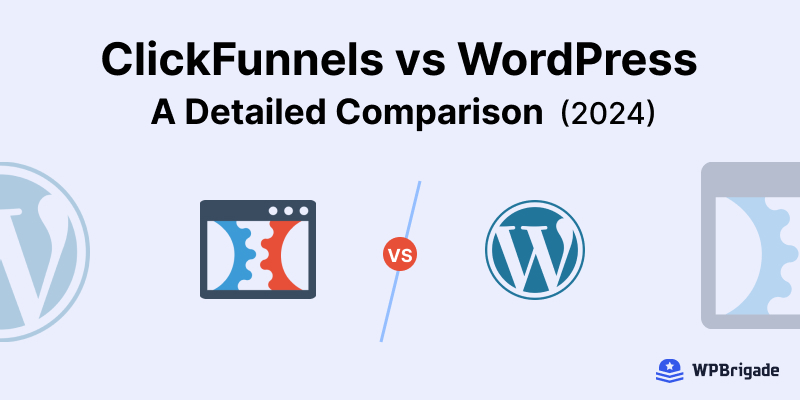Are you unsure if WordPress or ClickFunnels is the right choice for building a site that will support the growth of your business or blog?
Choosing the right platform to build and optimize your site can significantly impact your success.
Our ClickFunnels vs WordPress comparison guide will provide the insights you need to choose the ideal solution for your online presence.
WordPress vs ClickFunnels (TOC):
- Overview of ClickFunnels
- Overview of WordPress
- ClickFunnels vs WordPress: Key Features Comparison
- 1. ClickFunnels vs WordPress: Ease of Use
- 2. ClickFunnels vs WordPress: Customization Options
- 3. ClickFunnels vs WordPress: Ecommerce Functionality
- 4. ClickFunnels vs WordPress: Publishing Tools
- 5. ClickFunnels vs WordPress: Security
- 6. ClickFunnels vs WordPress: Integrations
- 7. ClickFunnels vs WordPress: Support and Community
- ClickFunnels vs WordPress: Pros and Cons
- ClickFunnels vs WordPress: Pricing Comparison
- WordPress vs ClickFunnels: Which is the Right Choice for you?
- ClickFunnels vs WordPress FAQs
- ClickFunnels vs WordPress: Recap
Overview of ClickFunnels
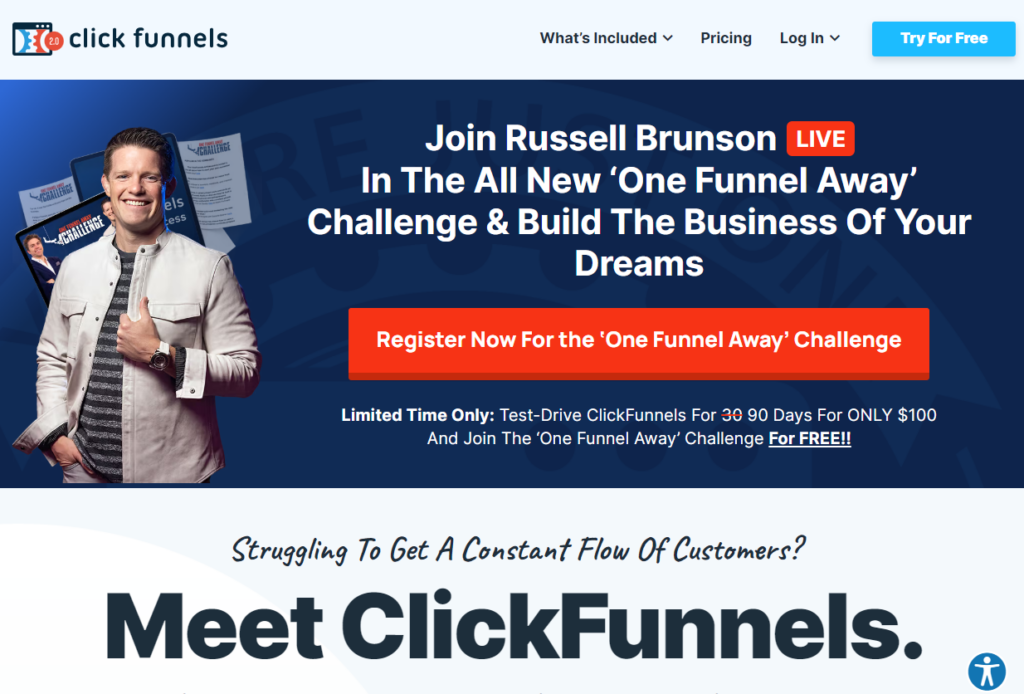
ClickFunnels is a SaaS (Software as a Service) platform for building high-converting websites and sales funnels. It joins sales, marketing, eCommerce, and analytics tools. Together, they help site owners make money through automated sales funnels.
No doubt, Having a website is crucial for businesses to establish an online presence and attract customers. Picture this: you have a site where users aimlessly browse. They might learn a little about what you do.
See what a traditional website looks like:
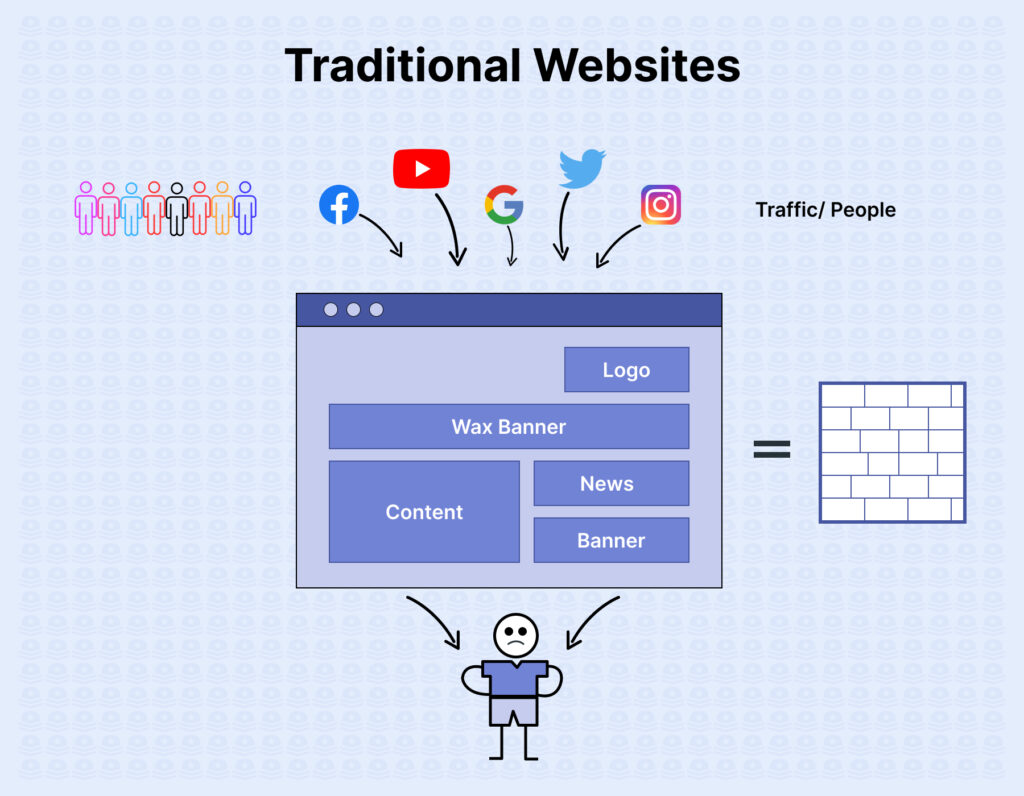
This is where ClickFunnels comes in. It helps entrepreneurs, marketers, and businesses streamline their sales funnels and increase conversion rates.
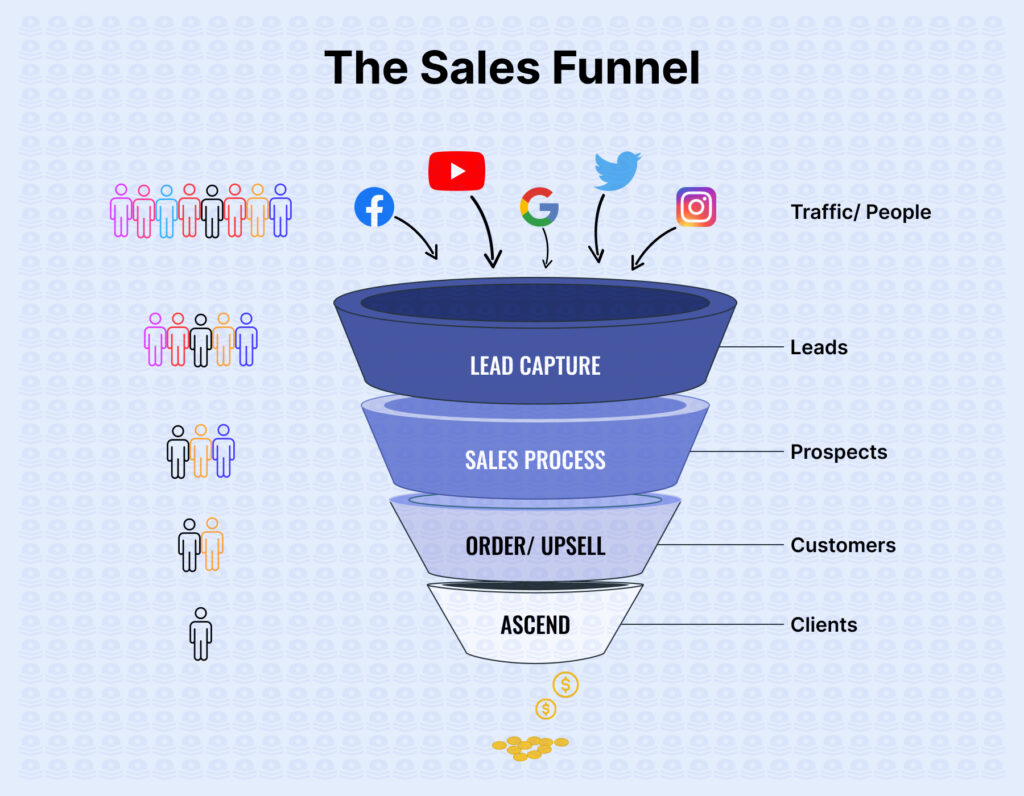
ClickFunnels is a digital road that paves the way for customers to your site. It has everything you need to run a successful business, such as:
- Sales Funnel
- Websites
- Online Courses
- Email Marketing
- Analytics
See the image below:
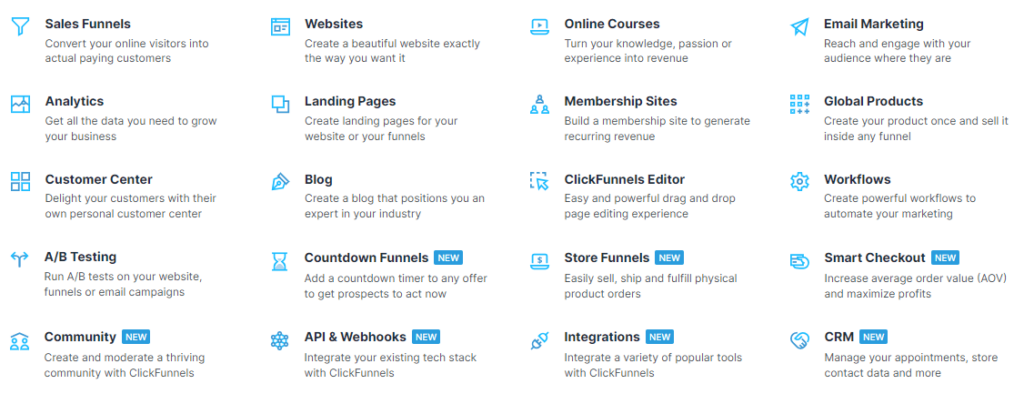
Overview of WordPress
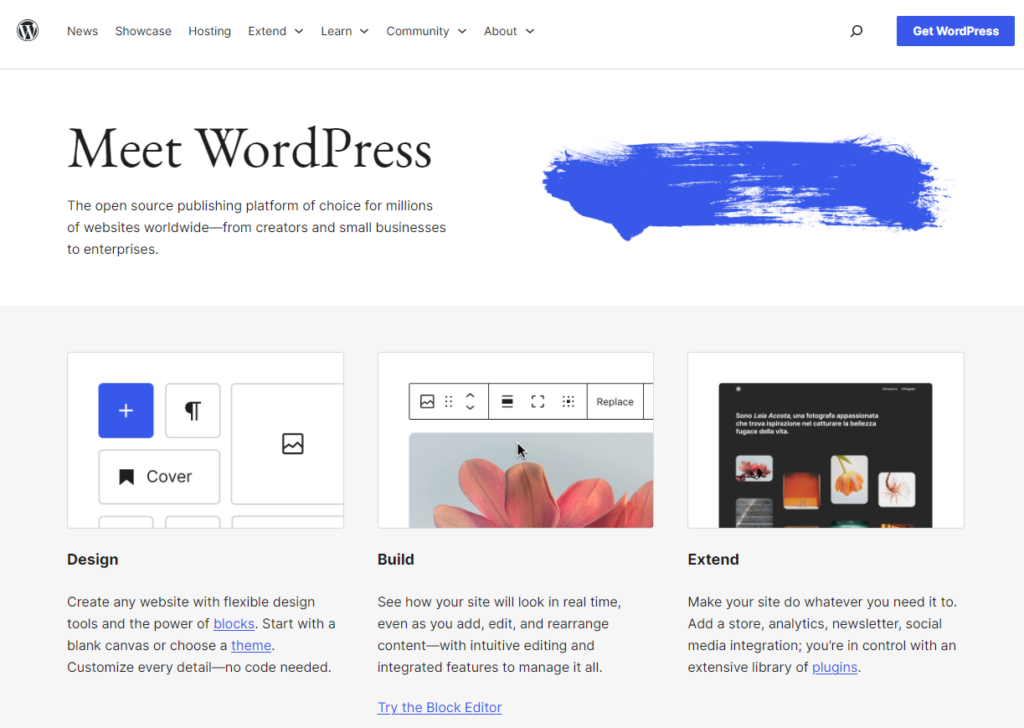
WordPress is the best website builder for creating responsive sites. It powers over 40% of all websites on the Internet.
It offers many themes and plugins that help you create a dream site.
WordPress has evolved from a simple blogging platform into a solution for building various types of sites. Its flexible free tools, such as plugins and themes, help you create an outstanding site without writing a single line of code.
See the GIF below:
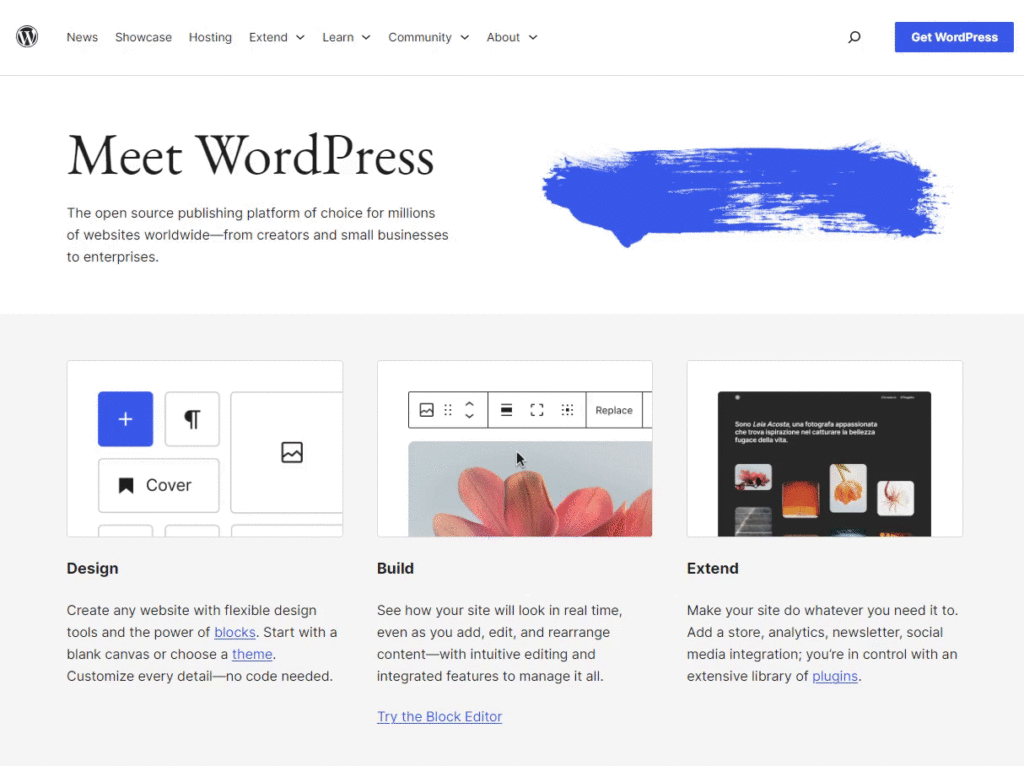
ClickFunnels vs WordPress: Key Features Comparison
1. ClickFunnels vs WordPress: Ease of Use
WordPress is far easier to use as compared to ClickFunnels.
1.1. WordPress Ease of Use
WordPress features a user-friendly interface, which makes it easy to use for beginners.
The clean interface makes managing content, settings, and various site components simple without feeling overwhelmed.
This is what the WordPress admin dashboard looks like:
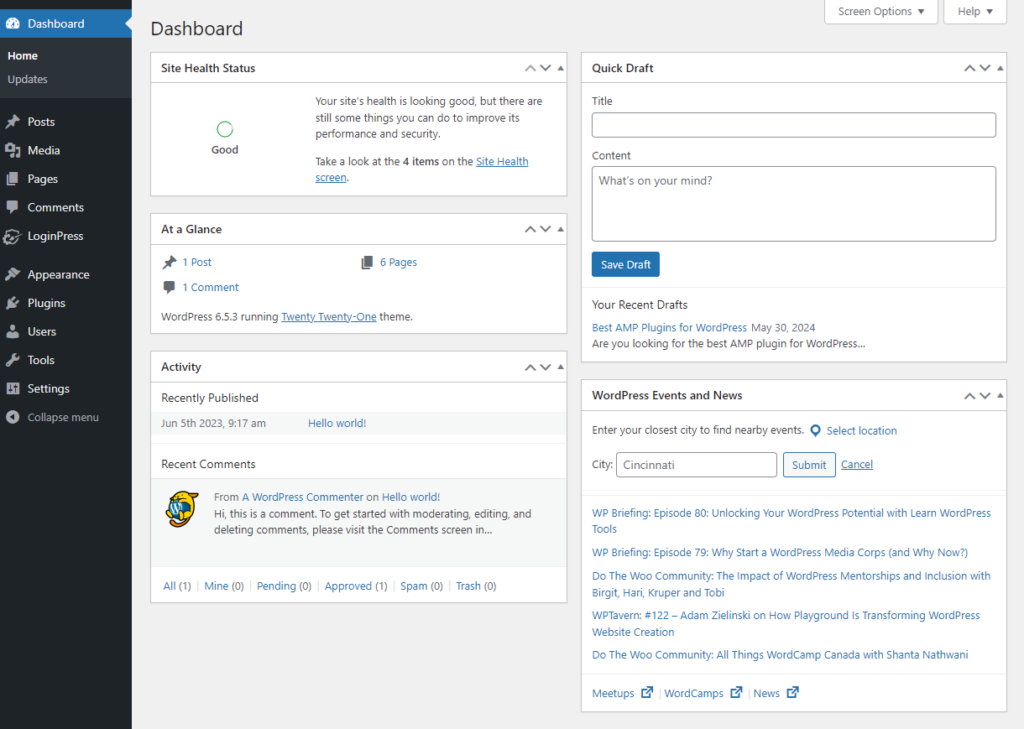
WordPress makes it easy to create and manage content. The platform features a powerful block editor, Gutenberg, that allows users to build posts and pages using drag-and-drop blocks. The best part is that it makes adding text, images, videos, and other media easy without coding knowledge.
See the image below:
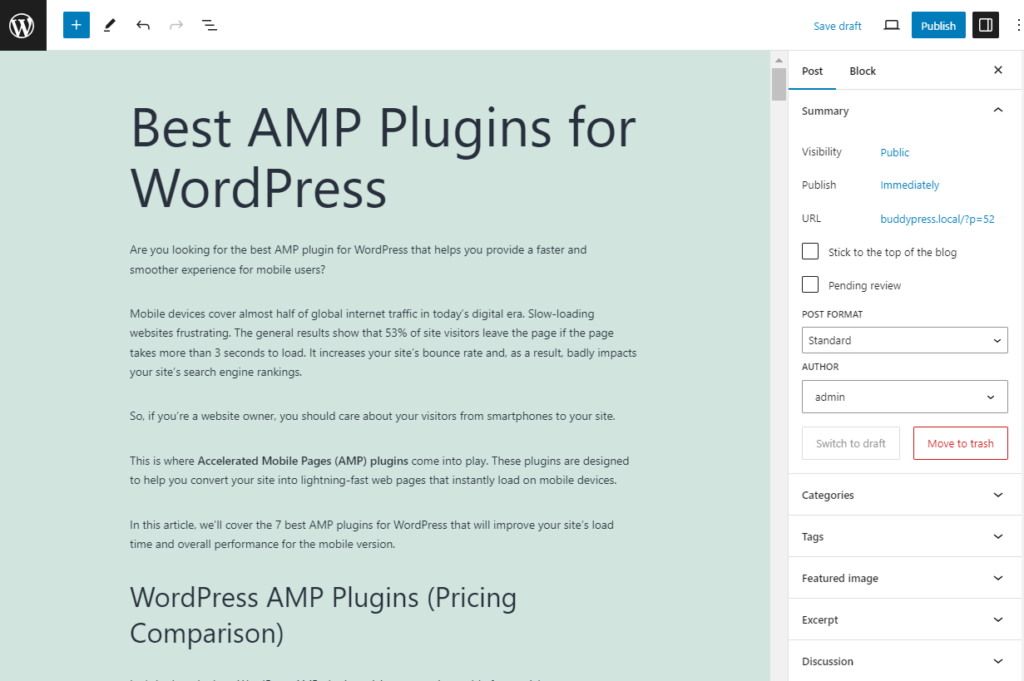
1.2. ClickFunnels Ease of Use
ClickFunnels is renowned for its user-friendly interface. It simplifies the process of creating and managing sales funnels for users of all technical backgrounds.
It allows users to build custom pages without any need for coding knowledge. It offers drag-and-drop elements, such as text boxes, images, and buttons, that help users create professional-looking landing pages and sales funnels quickly and efficiently.
See the image below:
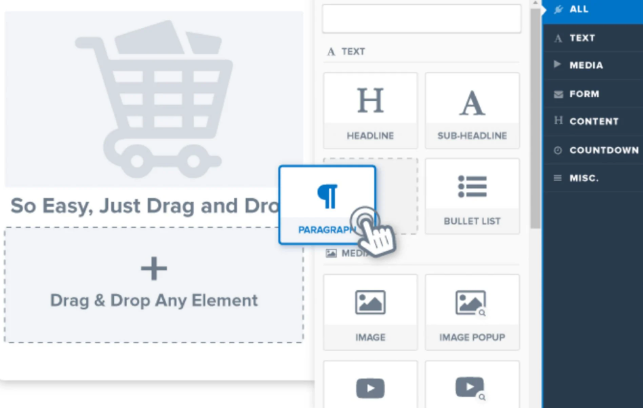
Other than this, it has an extensive library of pre-built templates. These templates are designed for a variety of purposes, including:
- Product launches
- Webinars
- Membership Sites
Users can select a template that matches their needs. Later on, they can customize it to fit their brand and message.
2. ClickFunnels vs WordPress: Customization Options
WordPress is the clear choice if you want to build a full-featured site with extensive customization options.
2.1. WordPress Customization Options
WordPress offers a lot of customization options that let you create your site’s visual design and overall layout.
All you need to do is to select a theme from the WordPress Theme repository. The Theme has all the basic design components, such as:
- Color schemes
- Typography
- Page layouts
… and other elements that create a consistent appearance throughout the website.
See the image below:
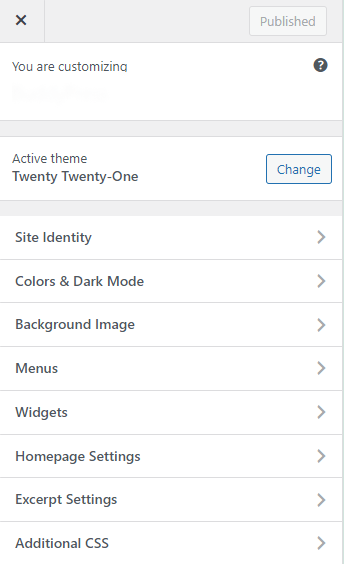
In addition, you’ll get a Theme File Editor area. Here, you can code to add desired functionality to your site without breaking the core site.
See the image below:
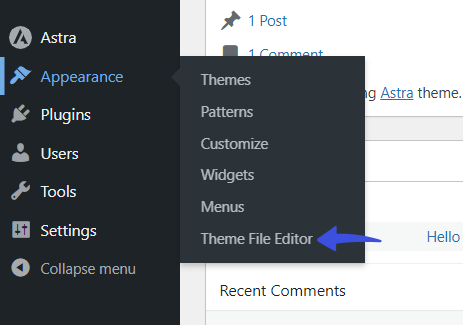
It offers thousands of plugins to customize your login page’s overall behavior. For example, you can use LoginPress, the best WordPress login page customizer plugin, to change your site’s look and feel.
See the image below:
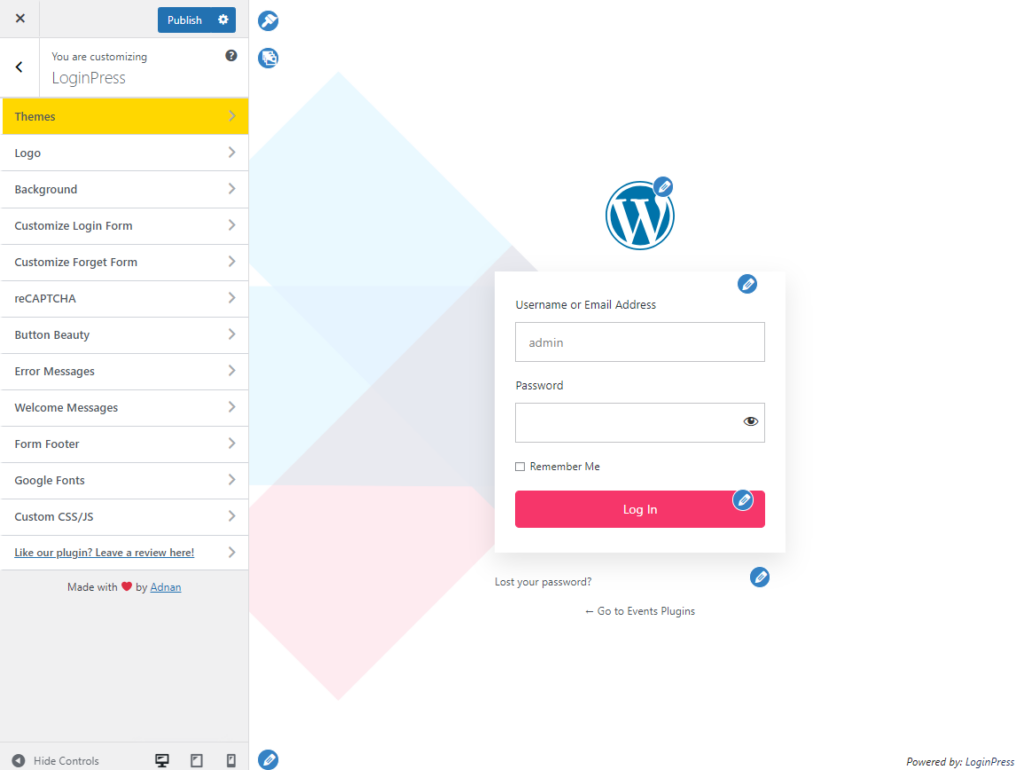
2.2. ClickFunnels Customization Options
On the other hand, ClickFunnels offers limited customization options as compared to WordPress.
It has a basic drag-and-drop editor and personalizes each element of your page. This editor supports various components, including Text, Images, Videos, etc.
Users can customize each element’s layout, size, and positioning, ensuring that their pages align perfectly with their brand identity and marketing goals.
See the image below:
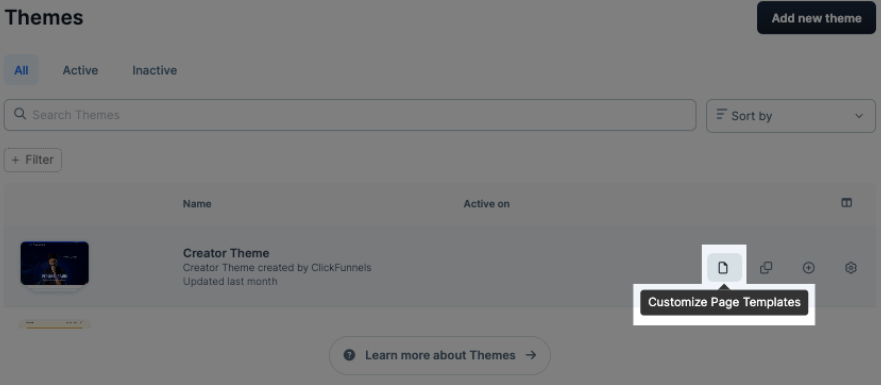
3. ClickFunnels vs WordPress: Ecommerce Functionality
ClickFunnels offers basic Ecommerce functionality. However, WordPress provides a more comprehensive, customizable, and cost-effective solution for Ecommerce functionality.
3.1. WordPress Ecommerce Functionality
WordPress fully supports Ecommerce plugins, i.e., WooCommerce and Easy Digital Downloads. This integration made it a leading platform for Ecommerce functionality, offering a flexible foundation for online stores of all sizes.
WooCommerce plugin helps transform a standard WordPress site into a fully functional online store. The plugin has all the essential features, i.e., product listings, shopping carts, and secure checkout processes.
See the image below:

Customization is a major strength of WordPress Ecommerce. Multiple themes and plugins are available to help businesses create a unique shopping experience that reflects their brand identity.
3.2. ClickFunnels Ecommerce Functionality
ClickFunnels offers a built-in comprehensive suite of tools for building and managing Ecommerce businesses. You can also customize your online store.
The platform supports popular payment gateways, such as Stripe and PayPal, and email marketing tools like MailChimp and ActiveCampaign. This integration allows for streamlined operations, as users can manage their sales, marketing, and customer relations from a single platform.
Note: ClickFunnels offers limited customization options for e-commerce compared to WordPress.
ClickFunnels’ strength also lies in its detailed analytics and reporting features. These tools provide valuable insights into customer behavior, sales performance, and funnel effectiveness. Users can track metrics, such as:
- Conversion rates
- Average order value
- and customer lifetime value
This is what enables them to make informed decisions and optimize their funnels.
This is what it looks like:
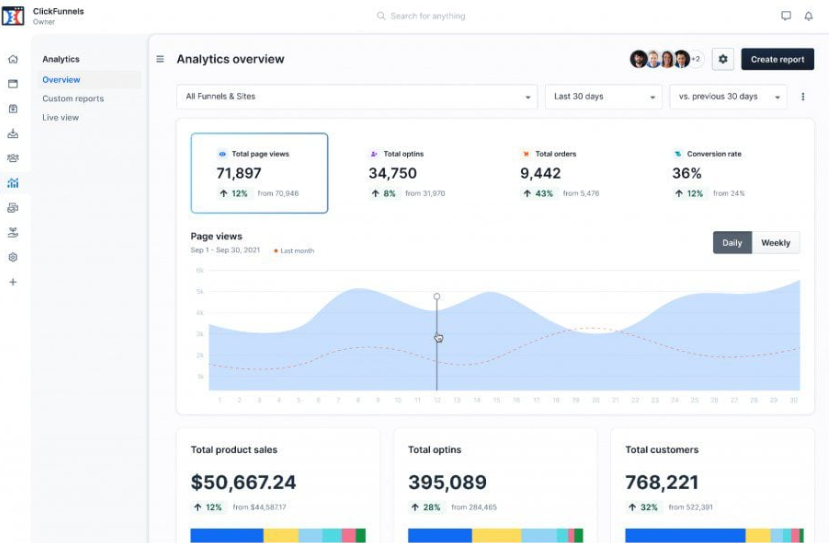
4. ClickFunnels vs WordPress: Publishing Tools
WordPress offers multiple publishing and blogging tools. On the other hand, ClickFunnels primarily focuses on building sales funnels; this is why it has limited publishing tools.
4.1. WordPress Publishing Tools
WordPress is a powerful content management system (CMS) that offers a comprehensive suite of publishing tools. This is what makes it suitable for bloggers, businesses, and media outlets.
WordPress provides a user-friendly interface that simplifies the process of building and managing content.
It has a visual editor, known as the Gutenberg block editor, which allows users to build pages and posts with a variety of content blocks, including:
- Text
- Images
- Videos
- and custom widgets.
It enables users to design complex layouts, ensuring content is visually appealing easily.
See the image below:
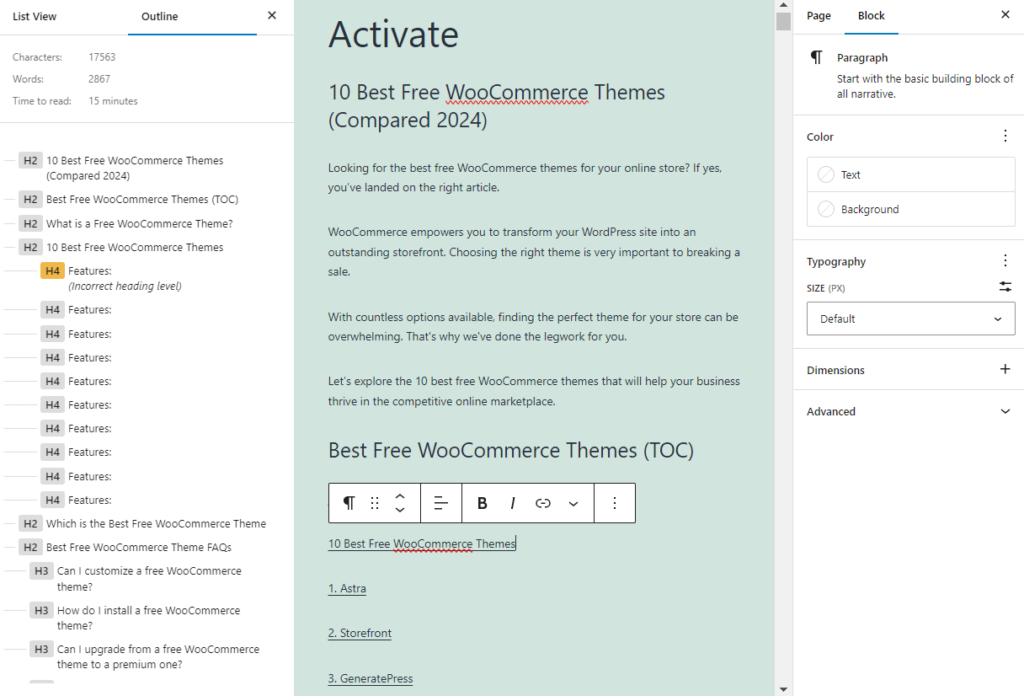
4.2. ClickFunnels Publishing Tools
ClickFunnels is a powerful platform for creating and publishing marketing funnels. One of its standout features is the intuitive drag-and-drop editor, which enables users to build highly customized and visually appealing web pages without writing a single line of code.
See the image below:
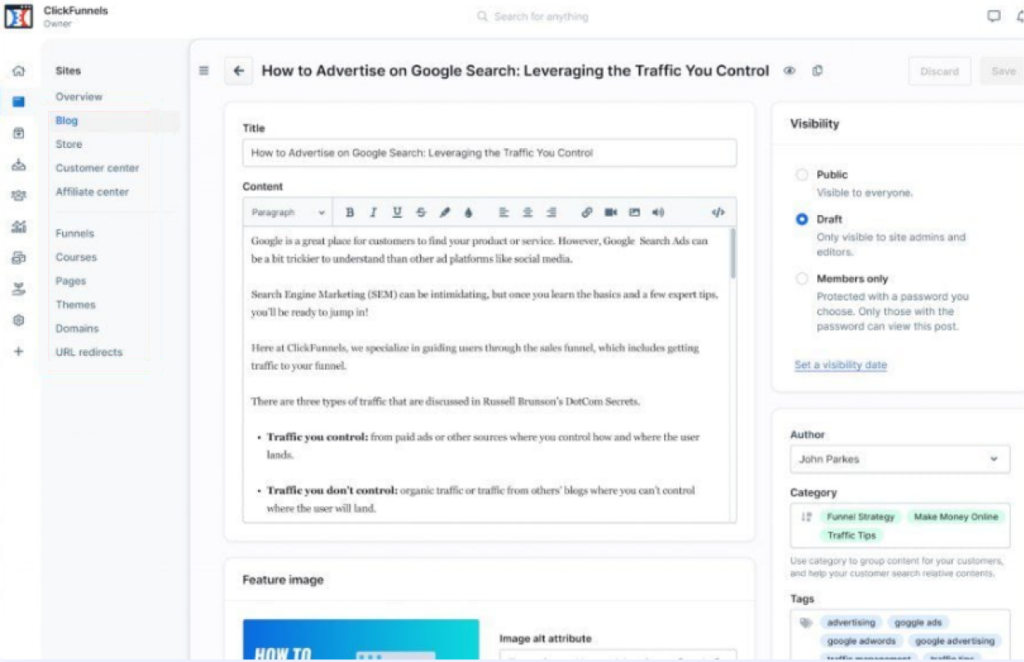
5. ClickFunnels vs WordPress: Security
Both WordPress and ClickFunnels offer site security features. The only differences are how they approach security and how far you can control these features.
5.1. WordPress Security
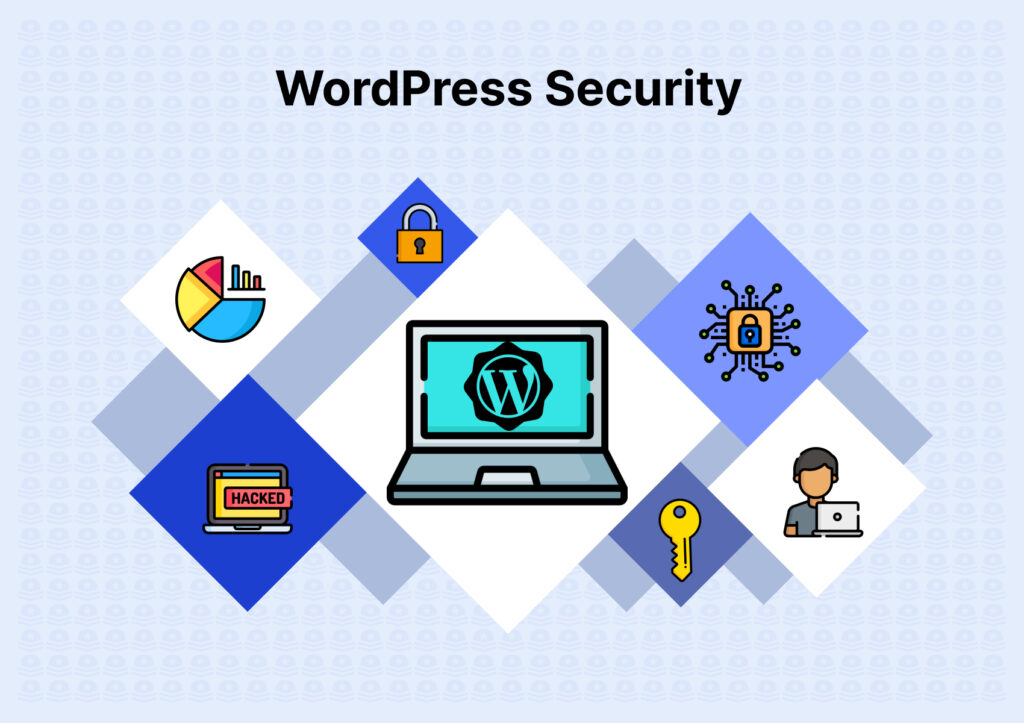
WordPress offers many free and premium plugins that can help detect suspicious activities, block malicious traffic, and alert you to potential threats in real-time, like:
You can also conduct proactive WordPress security audits to reduce the risk of your site being compromised. These measures include:
- Keeping your WordPress core, themes, and plugins up to date
- Using strong passwords
- Limiting login attempts to prevent brute-force attacks
Remember, regular updates help reduce vulnerabilities and improve the overall security of your site.
5.2. ClickFunnels Security
ClickFunnels handles sensitive data such as customer payment information, personal details, and marketing strategies.
Remember, ClickFunnel is a SaaS (Software as a Service) platform, which makes it vulnerable to attacks. To protect users’ data, you’re required to add security measures, like:
- Creating a complex password for your ClickFunnels account
- Adding Two-factor authentication (2FA
6. ClickFunnels vs WordPress: Integrations
WordPress is fully compatible with thousands of third-party services, such as plugins and themes, that can enhance its functionality. On the other hand, ClickFunnels has limited integration for third-party tools and plugins.
6.1. WordPress Integrations
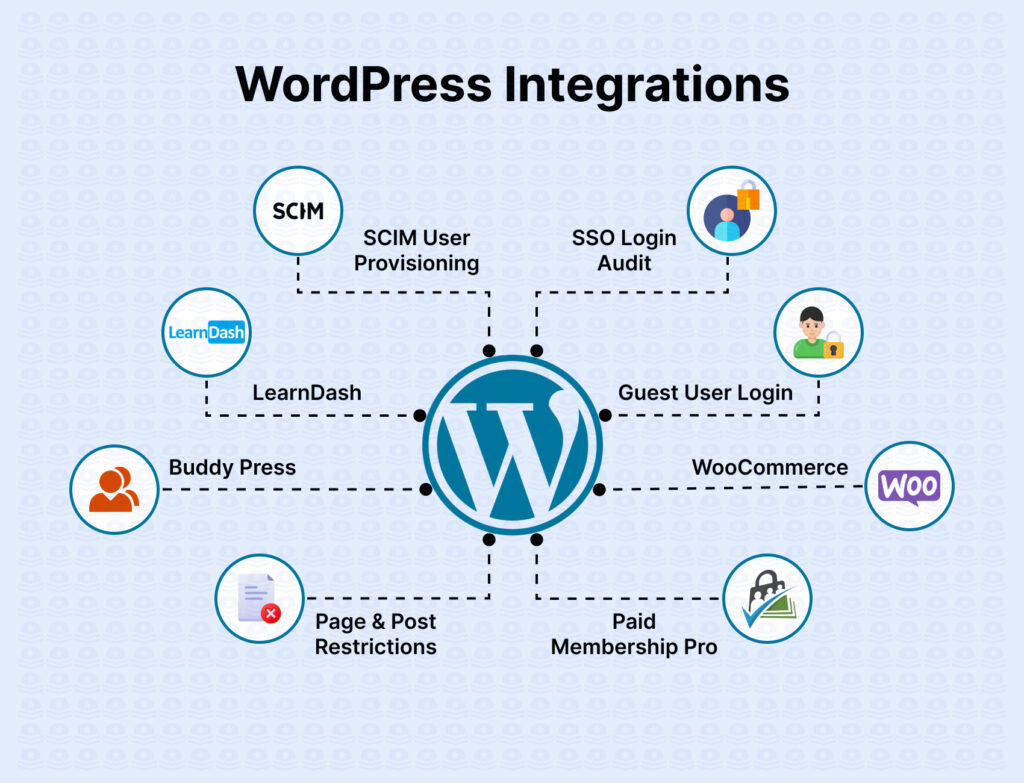
Let’s have a look at some of the best WordPress integrations:
It fully integrates with WooCommerce, a powerful Ecommerce plugin, that transforms your WordPress site into a powerful online store. It enables you to manage products, payments, etc. This flexibility makes WordPress a highly versatile platform.
WordPress fully integrates with LoginPress to let you customize each element on the default WordPress login page, i.e., changing the overall behavior, customizing the feel and look, and strengthening the overall security of the login page.
Other than this, Social media integrations also play a crucial role. You can use plugins like Simple Social Media Share Buttons to share your WordPress content across social media platforms, including Facebook, Twitter, and LinkedIn. It enables you to get more on your site.
Additionally, analytics tools like Analytify can be integrated to monitor website performance, user behavior, conversion rates, and a lot more.
You can also connect your site with email marketing services with the help of an email marketing plugin, i.e., Mailchimp. These plugins help you automate email campaigns directly from your WordPress dashboard.
WordPress helps integrate plugins like Smush to help your site automatically optimize uploaded images.
WordPress fully integrates with SEO plugins, such as Rank Math, which best help optimize your WordPress site and ensure that your content ranks higher in the search results.
It also integrates with editors like Elementor. It offers a drag-and-drop editor for your WordPress site to create a site you dreamt of.
WordPress offers integration for Really Simple SSL that helps add a certification to your WordPress site.
WordPress offers thousands more integrations. By leveraging these integrations, you can create a comprehensive environment that enhances the functionality of your WordPress site.
6.2. ClickFunnels Integrations
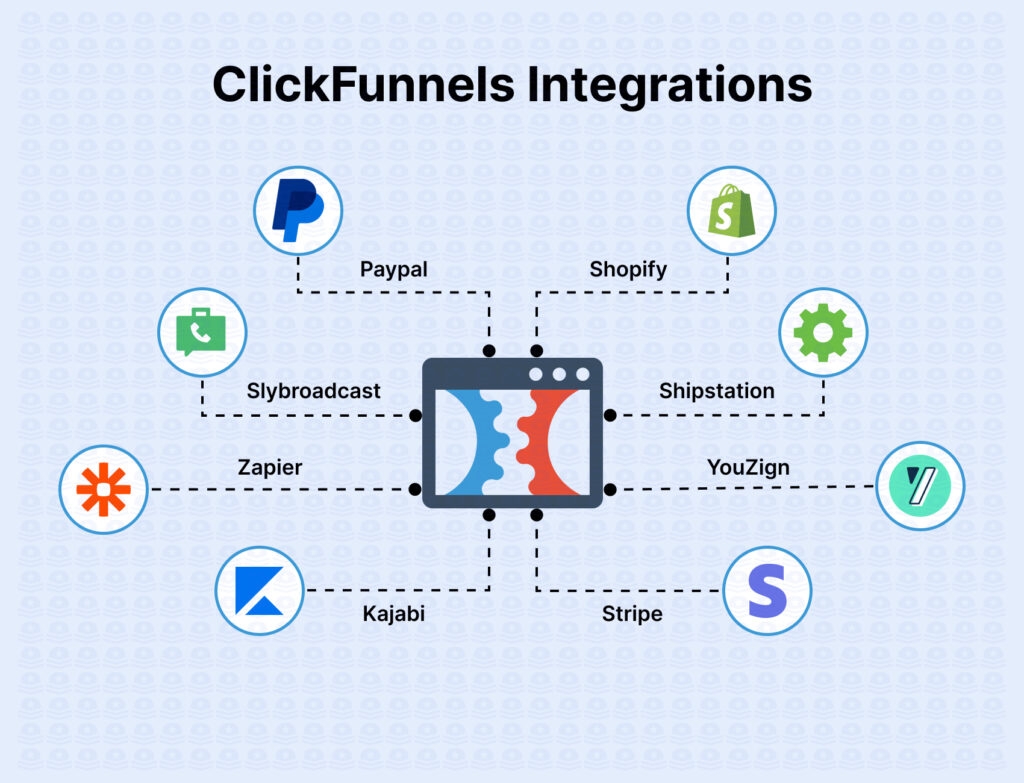
ClickFunnels integrates with multiple third-party services, but these integrations are limited compared to WordPress. This integration allows you to create a powerful marketing environment.
Some popular integrations are as follows:
ClickFunnels lets you integrate your site with Kajabi to connect your products with membership areas in Kajabi.
ClickFunnels fully integrates PayPal and Stripe to add a PayPal button to your ClickFunnels page and send funnel customers’ receipts directly from Stripe.
You can easily integrate this platform with Shopify.
Hundreds of more ClickFunnels integrations can help you strengthen your site.
7. ClickFunnels vs WordPress: Support and Community
WordPress has an active community of users and developers. This means you can use multiple tutorials, forums, and resources to help you with any issues.
While ClickFunnels has a supportive community, it is less extensive than WordPress. The resources available for troubleshooting and learning are more limited, which is a drawback in case you encounter problems.
7.1. WordPress Support and Community
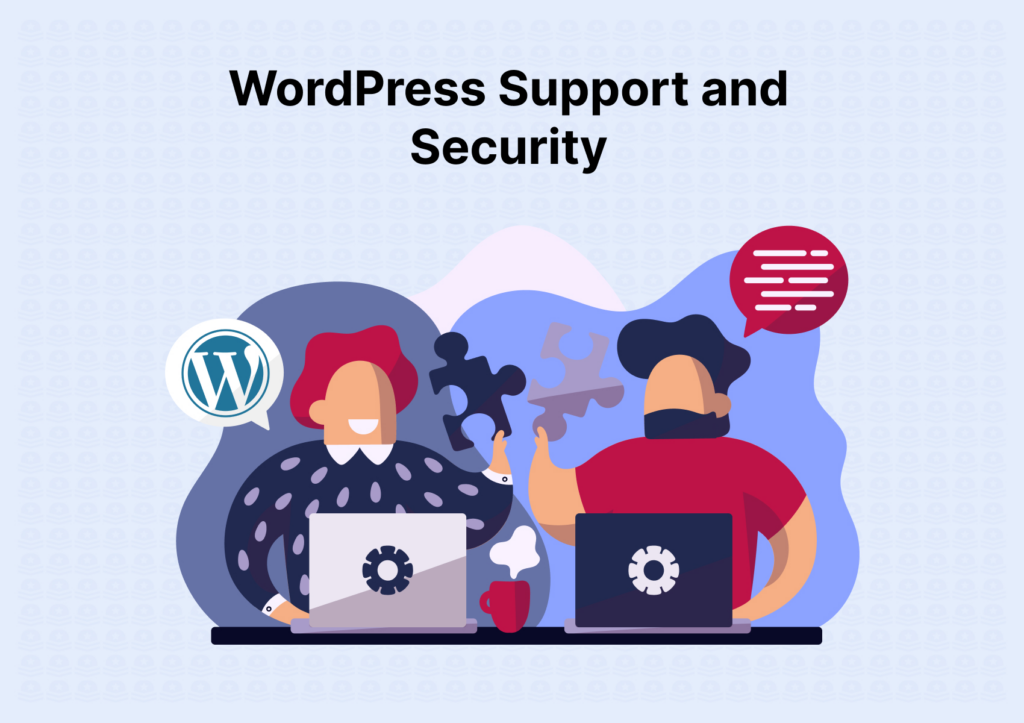
WordPress organizes local and global events, i.e., WordCamps and meetups, which provide another layer of support and community engagement.
These events offer an excellent opportunity to learn from experts and stay current with the latest trends and updates.
WordCamps are informal, community-organized conferences that focus on everything related to WordPress. Sessions cover topics from beginner to advanced.
See the image below:
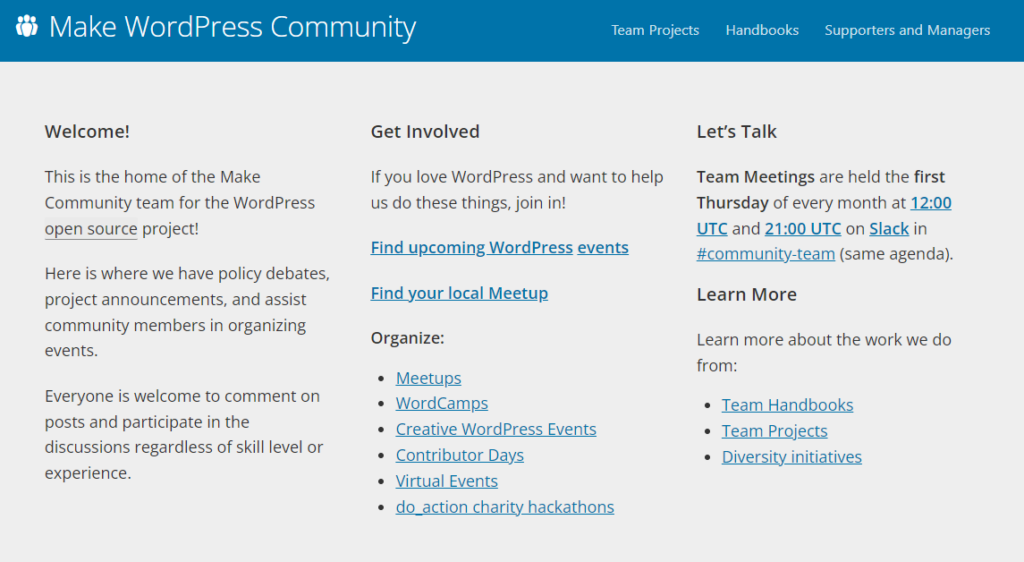
In addition, support extends to professionals specializing in WordPress development, maintenance, and support. These professionals help businesses optimize their WordPress sites, resolve complex issues, and implement custom features.
In summary, the WordPress support and community are diverse, catering to the needs of all users, from novices to seasoned developers.
7.2. ClickFunnels Support and Community
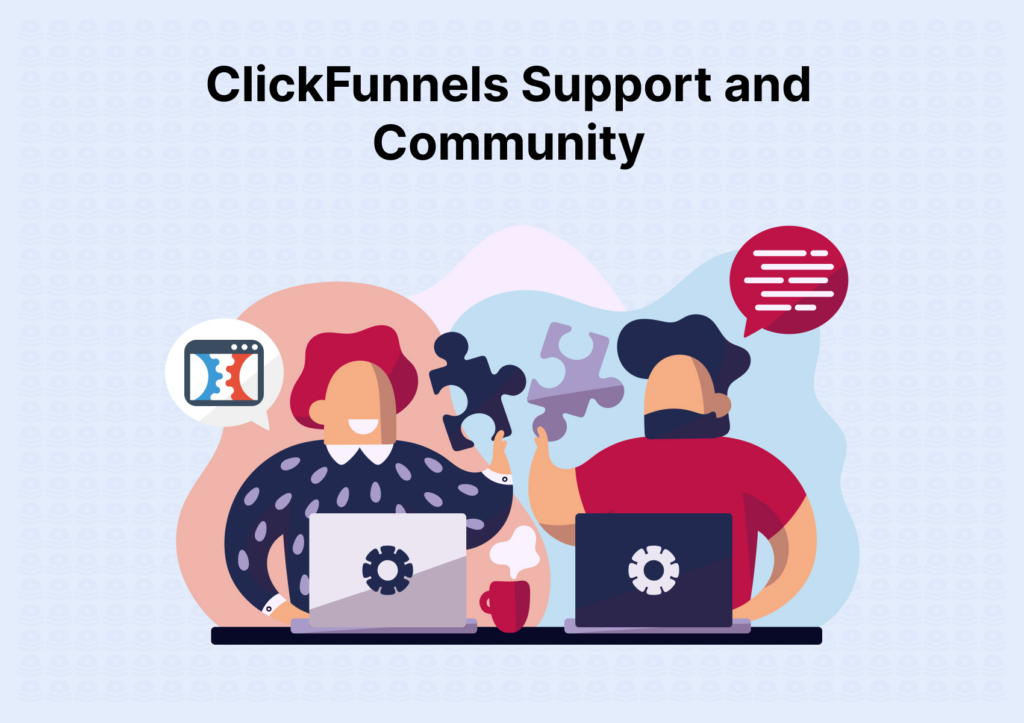
ClickFunnels offers a thriving community that ensures all users get the assistance they need to maximize their success using this platform.
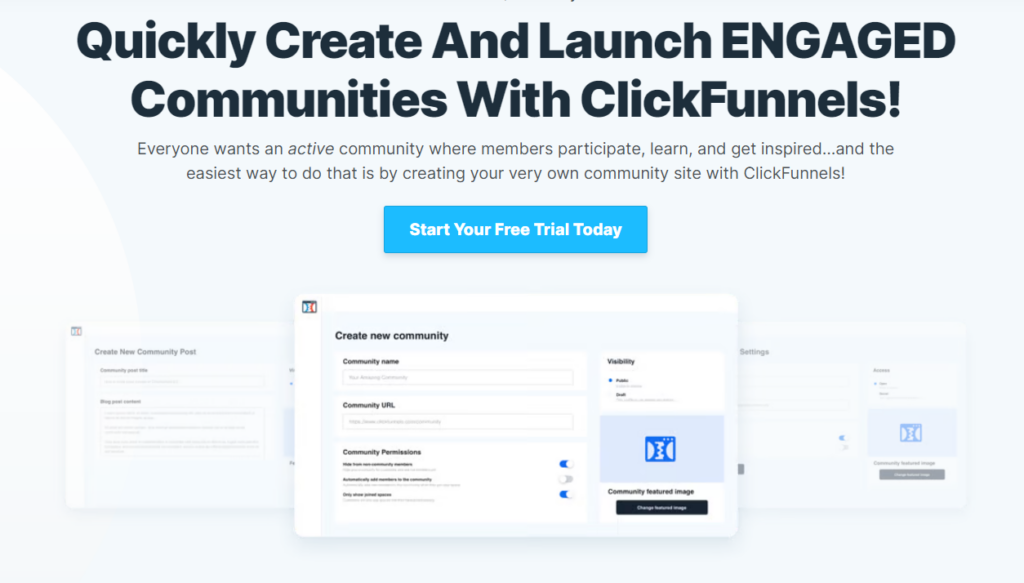
The official ClickFunnels Support Center has resources where users can find detailed articles, guides, and troubleshooting tips on various topics.
Whether you need help setting up your first funnel, integrating third-party services, or optimizing your pages for better conversion rates, the Support Center offers clear, actionable information to help you overcome any challenges you might face.
ClickFunnels vs WordPress: Pros and Cons
WordPress Pros and Cons
| WordPress Pros | WordPress Cons |
|---|---|
| WordPress is best for its intuitive and user-friendly interface. | WordPress sites can suffer performance issues, especially when overloaded with too many plugins or heavy themes. |
| It offers extensive customization options that help you create sites exactly how you want them. | More advanced features and customizations can require a steeper learning curve. |
| It provides regular updates to make the site secure and up-to-date with the latest web standards. | It requires familiarity with HTML, CSS, and PHP. |
| It doesn’t require coding skills to add desired functionality to your site. | Compatibility issues with plugins and themes. |
ClickFunnels Pros and Cons
| ClickFunnels Pros | ClickFunnels Cons |
|---|---|
| ClickFunnels has a drag-and-drop editor that allows users to create complex sales funnels. | ClickFunnels is a relatively expensive platform. |
| ClickFunnels offers an all-in-one platform for building sales funnels. | It can be limited in terms of customization as compared to other platforms, i.e., WordPress. |
| The platform provides a wide range of professionally designed templates for various funnels. | It has an extensive array of options and settings that can overwhelm new users.gvvrg |
ClickFunnels vs WordPress: Pricing Comparison
ClickFunnels offers multiple tiers with specific functionality for each, resulting in limited features for your site customization.
With WordPress, you have complete control over your site. You can choose your hosting provider, manage your data, and make any changes you want without any restrictions.
This level of control is needed to run an online business. It ensures that your site remains entirely in your hands.
This is why WordPress again leads to wins.
How Much Does WordPress Cost?
WordPress is a Self-Hosted platform. It offers the core functionality for free.
However, you need to arrange for hosting, a domain name, and any premium themes or plugins you choose.
There are multiple platforms from where you can buy a domain name, including:
- SiteGround – is available at $3.99/ month.
- GoDaddy – requires you to pay $4.99/ month.
- BlueHost – is available at $2.95/ month.
- Hostinger – requires $2.99/ month.
- DreamHost – is available at $2.95/ month.
Note: To choose the right WordPress hosting provider for you, see our detailed guide on 11+ Best WordPress Hosting Providers 2024.
Although 12,000+ themes and 59,000+ plugins are available for free in the WordPress repository, sometimes you might be required to buy premium themes and plugins. So, your total cost will depend on your specific requirements for themes and plugins.
How Much Does ClickFunnels Cost?
ClickFunnels offers 2 different pricing plans to accommodate different business needs and budgets.
As of now, the primary plans are as follows:
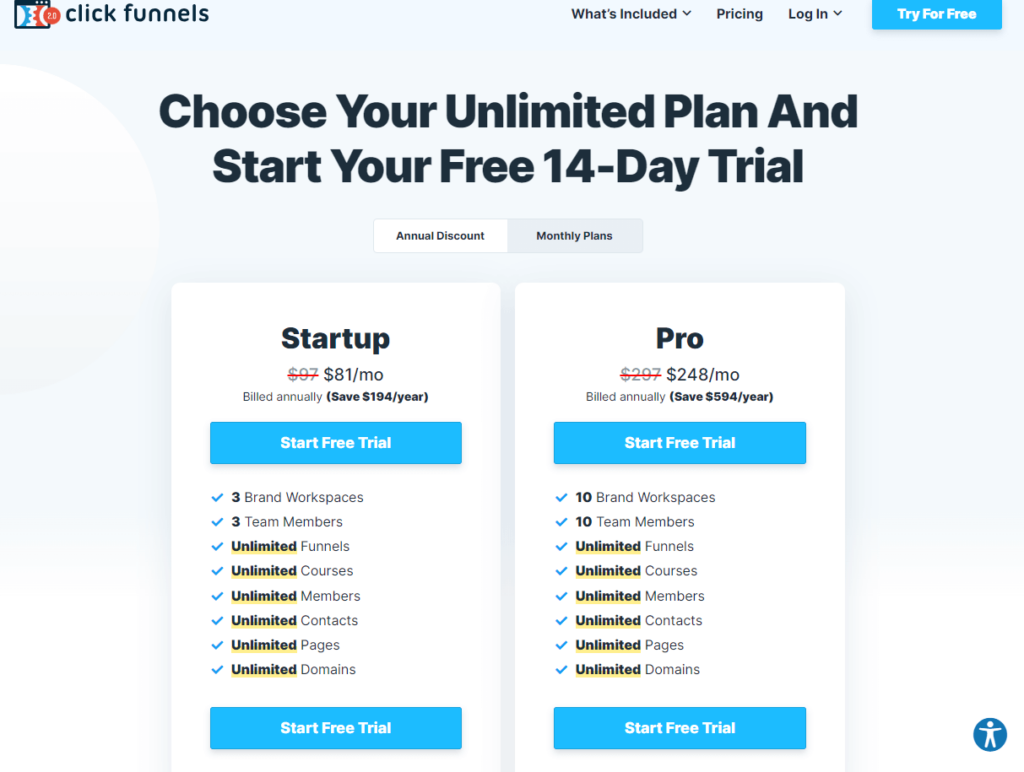
The Startup plan offers all the foundational features of ClickFunnels at $81/ month. It has 3 brand workspaces and 3 team members. Plus, you get unlimited funnels, courses, members, contacts, pages, and domains.
The Pro plan is available for $297/ month. It includes 10 brand workspaces and 10 team members, as well as unlimited funnels, courses, members, contacts, pages, and domains.
You can see that ClickFunnels comes with a few extra costs. Here is a comparison table for you to get a more clear picture:
WordPress vs ClickFunnels Pricing Table
| Features | WordPress | ClickFunnels |
|---|---|---|
| Hosting | $5/ month | Included |
| Video Hosting | Free | Included |
| Checkout & Affiliate System | $30/ month | Included |
| Email Marketing | Free | Included |
| Total | $35/ month | $81/ month |
WordPress vs ClickFunnels: Which is the Right Choice for you?
Choosing the right platform, such as WordPress or ClickFunnels, for building your site is crucial. While both platforms have merits, WordPress often stands out as the superior option for various reasons.
ClickFunnels is a powerful tool for creating sales funnels and landing pages, but WordPress offers a more versatile, cost-effective, and customizable solution for building a site.
WordPress is the clear choice if you need a platform that provides total control, extensive SEO capabilities, and a wide range of customization options.
In the end, the choice is all yours!
ClickFunnels vs WordPress FAQs
ClickFunnels is designed primarily for building sales funnels and managing online marketing campaigns. It offers features like landing pages, email marketing, and payment processing. On the other, WordPress is a content management system (CMS) that allows users to build a wide variety of websites with the help of multiple customization options through themes and plugins.
ClickFunnels is mainly designed for sales funnels, but you can also use it to create simple blog pages. However, WordPress is far better suited for blogging because it has tools for content creation, categorization, and SEO.
Yes, ClickFunnels tends to be more expensive. It offers a range of subscription plans starting at $97 per month. WordPress itself is free, but you’ll need to pay for hosting and a domain name. You can use free WordPress plugins and themes or even get their premium versions. So, the overall cost of using WordPress can vary widely depending on your specific needs and choices.
WordPress provides a comprehensive solution for handling an Ecommerce site. ClickFunnels can also help create an e-commerce site to create sales funnels for physical products. It lacks the extensive Ecommerce features and flexibility of WooCommerce. This is why WordPress is a better solution for building an Ecommerce site.
ClickFunnels vs WordPress: Recap
In conclusion, WordPress helps you create content-rich sites that allow for extensive customization and information sharing. ClickFunnels, however, is designed with one primary goal in mind: conversions.
The choice between ClickFunnels and WordPress depends upon your specific business goals.
That’s all for this article!
We hope you enjoyed reading this article. It may also be a great time to dive into some other helpful WordPress articles:
